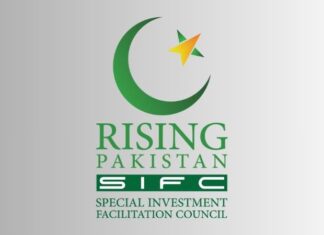KARACHI: Federal Finance Minister Mohammad Aurangzeb has indicated that there is potential for additional cuts in interest rates. Speaking at the Karachi Chamber of Commerce, Aurangzeb underscored the significance of sound macroeconomic governance for fostering economic growth, highlighting that structural issues can lead to balance of payment problems as the economy expands.
Aurangzeb emphasized the need for all sectors, including retailers, builders, and realtors, to contribute to the economy’s vitality. He noted that the implementation of agricultural taxes falls under provincial jurisdiction and anticipates that provincial governments will take action on this matter.
While expressing optimism about the possibility of further interest rate reductions, Aurangzeb clarified that such decisions rest with the State Bank of Pakistan. He conveyed confidence that the central bank would gradually lower rates.
In addition, Aurangzeb discussed his recent discussions with banks, advising them against directed lending and cautioning against securing loans with houses or cars. He encouraged banks to extend credit to farmers and small businesses to stimulate economic activity.
Aurangzeb also touched on efforts to streamline government ministries, referencing an unimplemented report on ministry downsizing from Imran Khan’s tenure. He stressed the importance of expanding the tax base to avoid overburdening the salaried class.
He revealed that the Sindh Chief Minister has agreed to pursue legislation for agricultural sector taxation, recognizing that such measures are crucial for economic stability. Aurangzeb concluded by highlighting the need to tackle balance of payments issues and aimed to increase monthly exports to $4 billion.























